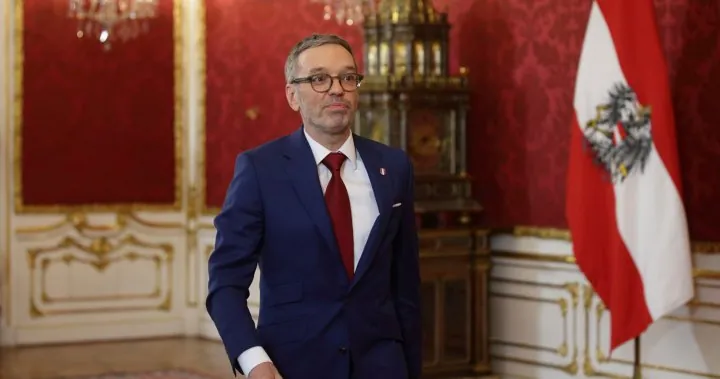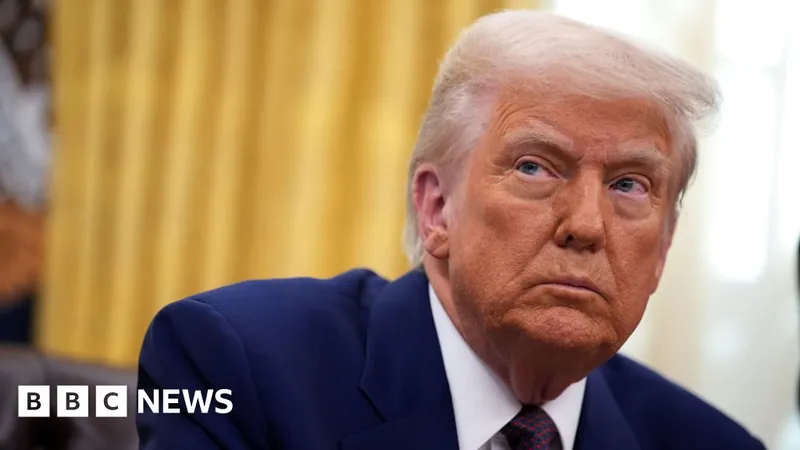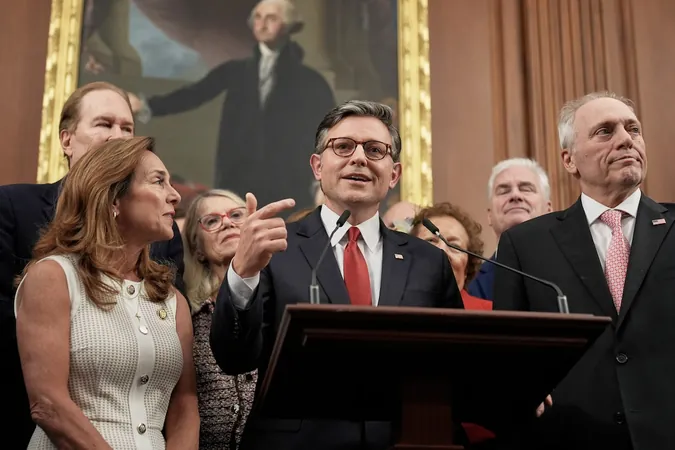
Austria on the Brink of Historic Change: First Far-Right Government Since WWII?
2025-01-06
Author: Sophie
Austria could be on the verge of a significant political shift as the leader of the far-right Freedom Party, Herbert Kickl, has received a mandate to attempt to form the first government of its kind since World War II. This potential new leadership follows a notable parliamentary election where the Freedom Party secured a substantial 28.8% of the vote, surpassing outgoing Chancellor Karl Nehammer’s conservative Austrian People’s Party.
In a dramatic turn of events, President Alexander Van der Bellen initially granted Nehammer the first opportunity to form a government. However, challenges arose when Nehammer’s party refused to engage with the Freedom Party, leading to a failed attempt at forming a coalition without them. Nehammer announced his resignation shortly afterward, opening the door for discussions with Kickl and the Freedom Party.
The recent political landscape has revealed a shift among the Austrian People’s Party, as they now seem more amenable to collaborating with Kickl. Following a lengthy meeting with Kickl, President Van der Bellen empowered the Freedom Party leader to initiate coalition talks with the People’s Party, emphasizing the need to respect Austria's constitutional principles during these negotiations.
Historically, the Freedom Party has served as a junior partner in past coalitions, particularly during their previous governance with the conservatives from 2017 to 2019. This time, however, Kickl, known for his provocative stance, could take the helm. His past term as interior minister witnessed a government collapse amid a scandal linked to the party.
Political analysts are cautiously optimistic about the feasibility of coalition talks, noting that the current parliamentary environment offers few alternatives, and public sentiment could further bolster the Freedom Party's standing should snap elections occur.
The Freedom Party's election manifesto, titled "Fortress Austria," proclaims a stringent approach to immigration, aiming to remove "uninvited foreigners" and advocating for a more "homogeneous" Austria through tight border control and proposed suspension of asylum rights under emergency laws. Moreover, Kickl's party has challenged Austria's stance on sanctions against Russia and criticized Western military aid to Ukraine, suggesting a move away from European defense initiatives.
As President Van der Bellen highlighted, the new government will inherit significant challenges: an ongoing recession, rising unemployment, and the urgent need for state budget restructuring. He warned that the measures required may not be popular, but they are essential for the nation’s economic recovery. Furthermore, the turbulence stemming from Russia’s war in Ukraine poses strategic risks that necessitate greater European cooperation, which could impact Austria’s industries and exports.
Kickl, despite the controversies surrounding his party, expressed optimism about the coalition talks ahead, signaling his readiness to address the responsibility of governance. As he exited his meeting with the president without a comment, the nation holds its breath, watching as Austria stands on the cusp of a potentially historic political transformation.
Will Austria embrace this new direction, or will the deep-rooted political tensions lead to a continued impasse? Only time will tell!









 Brasil (PT)
Brasil (PT)
 Canada (EN)
Canada (EN)
 Chile (ES)
Chile (ES)
 Česko (CS)
Česko (CS)
 대한민국 (KO)
대한민국 (KO)
 España (ES)
España (ES)
 France (FR)
France (FR)
 Hong Kong (EN)
Hong Kong (EN)
 Italia (IT)
Italia (IT)
 日本 (JA)
日本 (JA)
 Magyarország (HU)
Magyarország (HU)
 Norge (NO)
Norge (NO)
 Polska (PL)
Polska (PL)
 Schweiz (DE)
Schweiz (DE)
 Singapore (EN)
Singapore (EN)
 Sverige (SV)
Sverige (SV)
 Suomi (FI)
Suomi (FI)
 Türkiye (TR)
Türkiye (TR)
 الإمارات العربية المتحدة (AR)
الإمارات العربية المتحدة (AR)